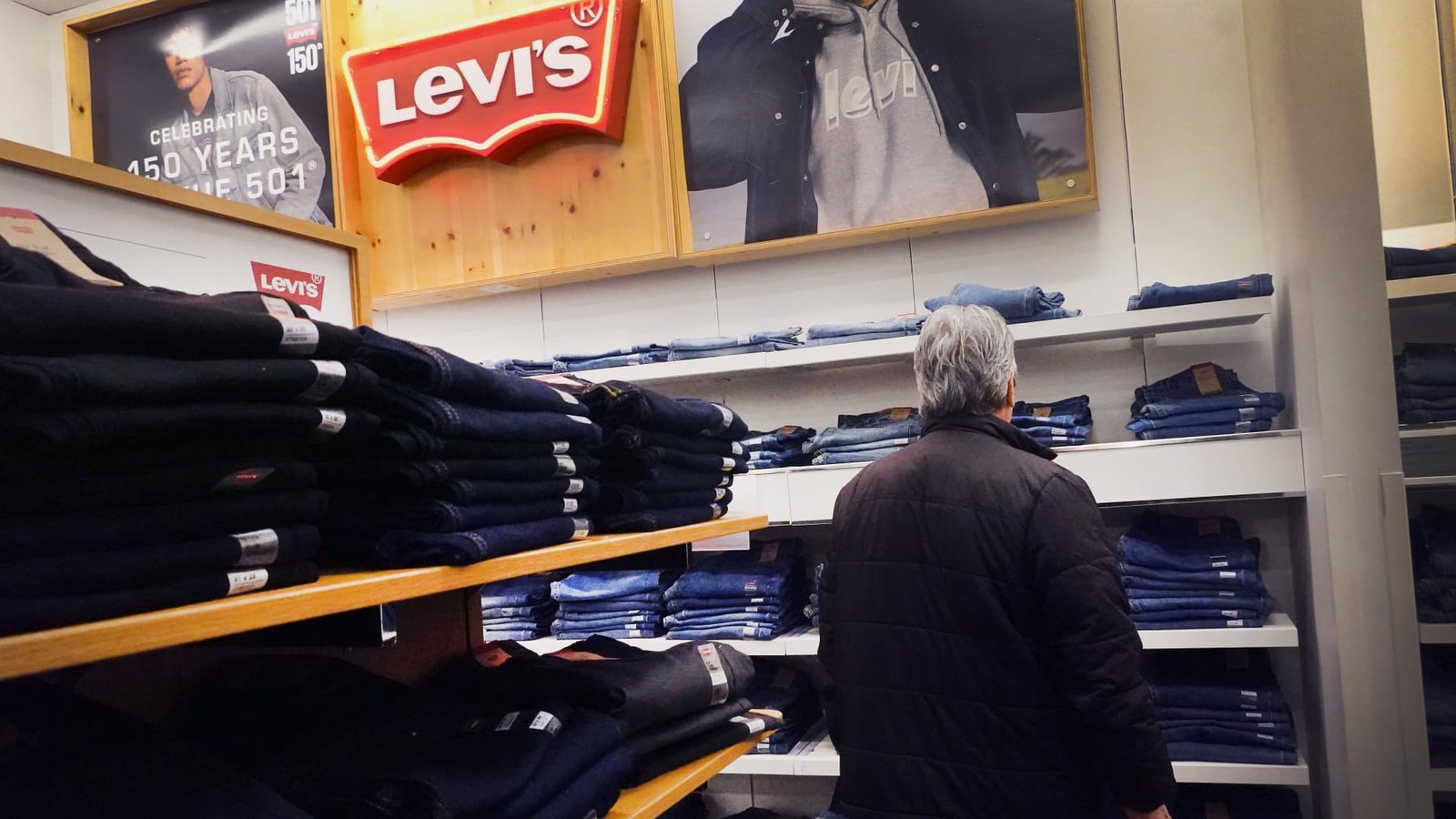Levi Strauss provided a disappointing outlook for its current fiscal year on Wednesday due to challenges such as unfavorable currency exchange rates, one fewer selling week, and decreased revenue from its Denizen and footwear divisions. The company projected a sales decline of 1% to 2%, falling short of the estimated 3.7% growth. Adjusted earnings per share were anticipated to be between $1.20 and $1.25, below the expected $1.37. Consequently, shares dropped approximately 6% in after-hours trading.
CEO Michelle Gass explained that the projected revenue decrease for the fiscal year was not due to reduced demand but rather influenced by currency trends, a shorter fiscal week, and divested businesses. Despite this, Levi ended fiscal 2024 on a positive note, surpassing expectations with its earnings and sales performance.
During the fiscal fourth quarter, Levi reported a net income of $182.6 million, or 46 cents per share, compared to $126.8 million, or 32 cents per share, in the previous year. Adjusted net income was $202 million, or 50 cents per share, up from $179 million, or 44 cents per share, a year earlier. Sales increased to $1.84 billion, a 12% rise from the previous year, with organic sales growing by 8%.
Under Gass’s leadership, Levi has focused on improving profitability by eliminating underperforming aspects of the business, enhancing online and in-store sales, and attracting more female customers. The company’s partnership with Beyonce has been particularly successful in driving demand across its business.
Levi has been successful in appealing to female shoppers by offering a variety of products, including loose and wide-legged denim fits and a range of new tops. Sales across all regions, brands, and channels saw significant growth during the quarter, with direct-to-consumer sales increasing by 19%.
Levi’s finance chief, Harmit Singh, addressed concerns about potential tariffs impacting the company’s costs and consumer prices. Singh stated that Levi plans to work with suppliers to minimize the impact on consumers and protect the business’s economics. Despite recording a record gross margin of 61.3% during the quarter, Levi incurred impairment charges related to its Beyond Yoga brand, reflecting the company’s ambitious growth expectations for the athleisure category.
Singh expressed confidence in the leadership of Nancy Green, the former CEO of Gap’s Athleta, who now heads Beyond Yoga. Levi remains optimistic about the growth potential of the brand and the athleisure category as a whole.




